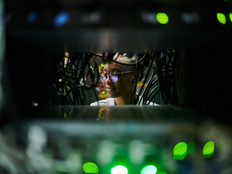How One City's CIO Manages Constant Change in Technology
When Vicki Irey joined the city of Overland Park, Kan., in 1978, she worked in what was then called the Data Processing Department. Now, she holds the post of CIO for the Kansas City suburb. Irey spoke with StateTech Managing Editor Amy Schurr about how the city's IT operations have evolved during her eight years of leadership and some of the agency's accomplishments.
STATETECH: How has the city's technology environment changed over the years?
IREY: How has it not changed? IT is constantly changing. The economic downturn has had a huge effect on us. Fortunately, we were sitting in really good seats with really good technology. That allowed us to ride out the storm.
We had to stop refreshing desktops and bringing new technology and equipment in, but that's slowly coming back. A priority for our city manager last year was to begin refreshing our equipment. Of course, you don't refresh your entire inventory at once, you can't do that. But we've begun, and that's very good news.
We also built out a city-owned fiber network and connected all city facilities, along with county facilities and libraries that reside inside Overland Park. And at the end of 2011, we rolled out a new police radio system.
STATETECH: How did your approach to IT shift during the economic decline?
IREY: The downturn caused us to stop and think about where we apply our limited funds and how we do business with our technology going forward. It caused us to explore things like cloud solutions, hosted solutions, virtualization, mobile technologies and sharing with other jurisdictions in the county.
STATETECH: What kind of data center do you operate?
IREY: My data center is 98 percent virtualized with server virtualization and storage area networks. The downturn caused us to look at desktop virtualization and cloud computing.
We have two data centers, so the city has a very robust disaster recovery and business continuity plan. Overland Park, geographically, is long and skinny. So when you study the map and the tornado patterns, it would be highly unlikely to lose both data centers at once.
STATETECH: What's your overall vision for the city's IT infrastructure and applications?
IREY: It's to make sure our departments have the tools they need to provide services to our citizens. In addition to supporting them in doing the best job they can, as efficiently as they can, we also need to provide the technology for a 24-hour city hall.
A large number of our citizenry have smartphones and tablets, and they're using them to communicate back to us. So steps we took in 2012 were to launch a mobile-readable website. This year, we're working on mobile apps.
STATETECH: Have you deployed bring-your-own-device initiatives?
IREY: Yes, we have BYOD. If you're an exempt employee and you want to connect your personal smartphone or tablet, you can, as long as your department director and I have authorized it and the device is password-protected.
We have selected Sophos mobile device management software and are in the process of implementation. The great thing about the Sophos security modules is we will be able to segregate city content from personal information.
STATETECH: What kind of mobile devices do you provide for field workers?
IREY: Most everyone who is out working in the field has access to notebooks. We're piloting tablets for parks and recreation, and also in planning and development services, which handles restaurant inspections.
Vicki Irey, CIO for the city of Overland Park, Kan., describes a police car as a mobile office. "The equipment that we have in the police car costs more than the value of the car," she says. Cruisers house the following technology:
- Ruggedized notebook
- Desktop virtualization
- Data card
- Mobile router
- Magnetic-stripe reader
- Mobile printer
- Automatic license plate recognition
- Video recording
- Police radio
STATETECH: How do you collaborate with your peers?
IREY: Johnson County has 22 cities, and as a suburb of Kansas City, we're on the state line. We're all very close and work together in the metro area. We can't always share data, but we share ideas and talk a lot.
When we migrated our public-safety application from the mainframe in 2002, our police chief gathered up the county sheriff and the other police chiefs in the county and suggested centralizing it. So Overland Park hosts the public-safety database for the county and all the cities inside it, except Lenexa, which has its own system. We all share in the application and the hardware and maintenance.
We just deployed a new Intergraph computer-aided dispatch, records management and mobile reporting application — it's comprehensive public-safety software.
The county has put out a bid for a mass notification system. We've had one for years, but it has outlived its life and is limping along, so we decided to join the county bid. We're all going to share the system.
STATETECH: What is your department's biggest challenge?
IREY: To me, security — the threats we have today against us from hacker groups like Anonymous are big. Another challenge is staffing. We lost five IT positions during the downturn and now have a group of 22, including myself. How do we keep going with the number of hands we have and the amount of work we have to do?
STATETECH: What technologies do you plan to adopt in the near future?
IREY: Mobile device management, virtual desktop infrastructure and hosted applications, where it makes sense.
We're looking at refreshing our planning and development application. We had Tidemark, but it's not maintained any longer. In the coming years, we'll be looking at a new HR and financial application.
STATETECH: Does it help to live in a technology-rich area with Sprint-Nextel headquarters in your city?
IREY: It does. On the city council, several council members are tech-savvy. I have a lot of support, and they're very tech-educated, so I'm fortunate in that way.
STATETECH: Are you integrating IT and physical security?
IREY: Yes, we have CCTV and access cards. We refreshed all the CCTVs to a common digital platform, which is very exciting. Wherever you are, if you can access a web browser and a password, you can view the surveillance, which is particularly great for our dispatch. If there's a need, they can see it and manage it from wherever they are.
STATETECH: What about video conferencing?
IREY: We have used it for interviewing for a city manager position or department director. When you're interviewing people in other places, you're able to use video conferencing before you spend the money to bring them in. But as far as full-blown network video conferencing, my organization just doesn't have a need.
STATETECH: How has your experience been with staffing and retention?
IREY: You know, I've been very fortunate. I've had very little turnover. Most of my employees have been here five-plus years, and the biggest portion have been here 12-plus. This is a great place to work.
When I do hire, I'm lucky that Kansas City is a technology-rich area and we receive a number of highly qualified applicants.
But one job that's hard to fill right now is a developer or programmer type. There's a lot of competition.









